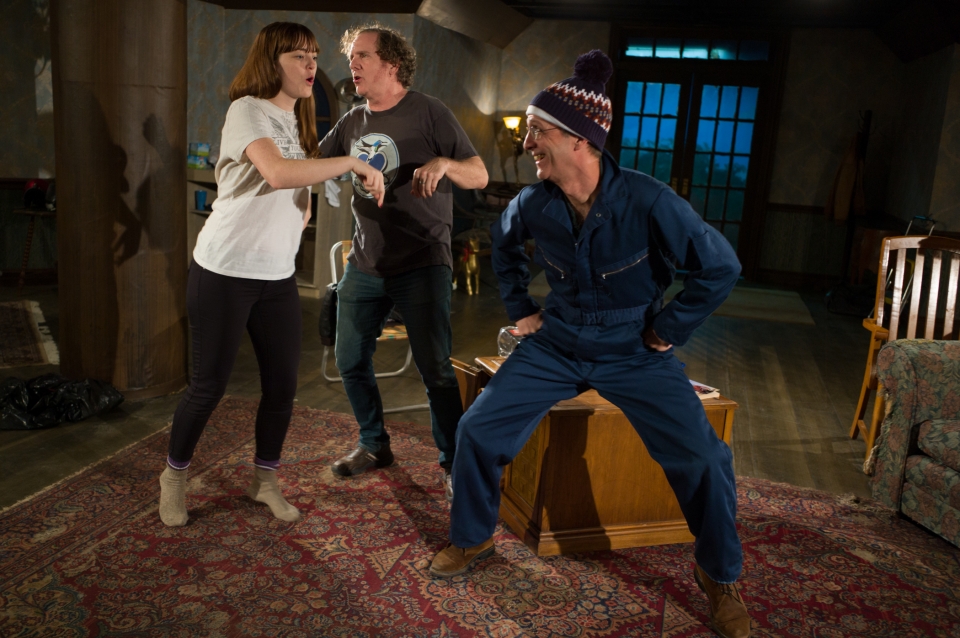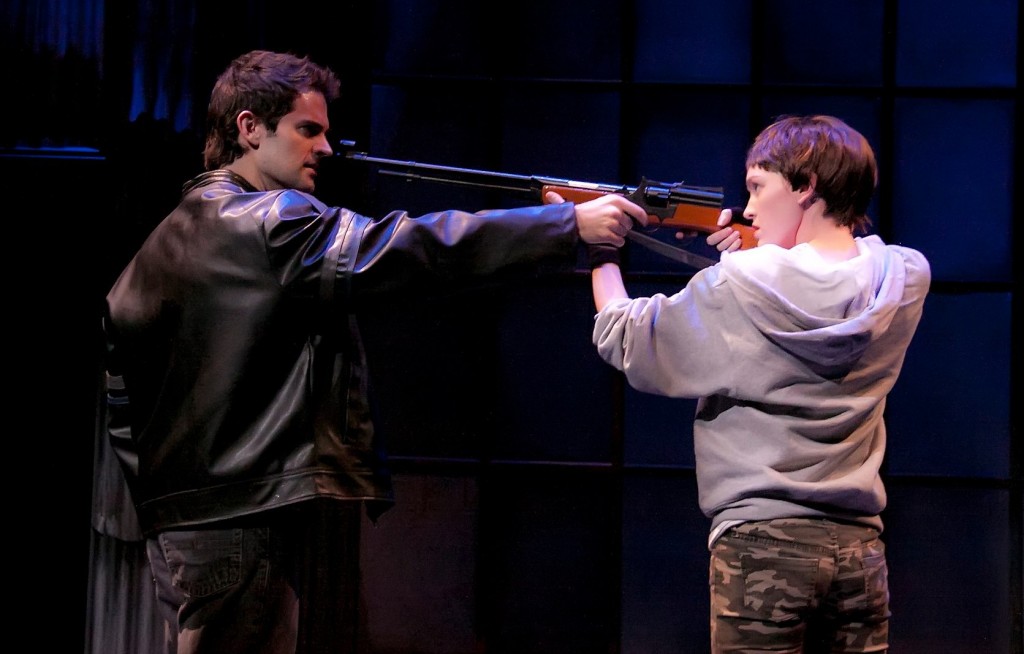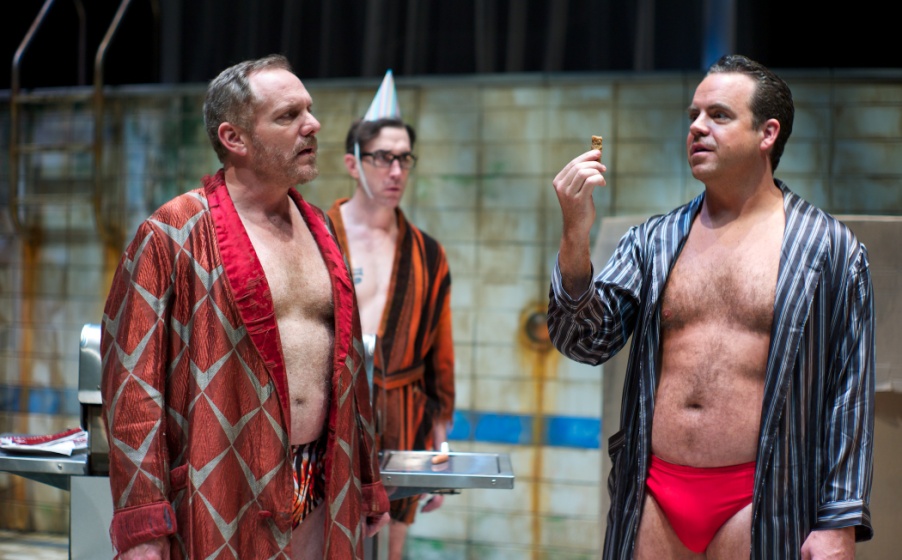Irish Playwright Invasion: McDonagh Vs. McPherson
ArtandSeek.net December 4, 2015 34
Katherine Bourne, Bruce DuBose and Scott Latham dancing to Marvin Gaye in ‘The Night Alive’ at the Undermain Theatre. Photo: Katherine Owens
Irish playwrights have been all over North Texas stages in recent years. Conor McPherson’s ‘The Night Alive,’ currently at the Undermain Theater, is the third of his haunting plays the company has staged. Meanwhile, Martin McDonagh’s dark comedies have been presented by Kitchen Dog, WaterTower, Second Thought and Stage West. Art & Seeks Jerome Weeks takes stock of this Gaelic invasion with Justin Martin.
I understand Conor McPherson and Martin McDonagh have had something of a feud. Or at least a rather chilly exchange. What’s that all about?
I’ve seen ‘In Bruges,’ the 2008 film that McDonagh wrote and directed.
If I remember correctly: hookers, dwarves, violence and cocaine. Yeah, it’s pretty appropriate.

You blinked. Matt Moore and Kayla Carlyle in ‘The Lieutenant of Inishmore’ at the WaterTower Theatre. Photo: Mark Oristano.
Meaning what?
Well then, what about McPherson’s plays?
Now, McDonagh would have put it front and center. McDonagh is all about showing us, sticking it to us so we can’t look away, whether that’s comedy or violence. And I think that’s a big reason he’s pretty much abandoned theater these days for film. He’s even said he has more respect for the traditions of film than theater. It’s also why, I think, with his next film, ‘Seven Psychopaths,’ he fell into the Tarantino trap of outrageous absurdity. There are scenes in it I enjoyed, but it mostly struck me as a cynical mess.
McPherson, on the other hand, is about suggesting things – particularly otherworldly, unseen things. He has said, growing up in Ireland, you’re always aware of being on the far edge of Europe and of the Atlantic Ocean, the great beyond that’s out there. So instead of the kind of grotesque, ultra-realistic violence you get in McDonagh’s writing, McPherson’s plays tap into the traditions of the Irish ghost story. They’re all about … what’s beyond.
McPherson himself has directed and co-written a film, called The Eclipse,’ came out in 2009. I think it’s seriously underrated by horror movie fans, people who want those big, gotcha, shock effects. It’s really more about a creepy sense of loss, of ghosts representing not letting go. As they say, it casts a really nice pall.
At one point, a British novelist, played by Iben Hjejle, does a reading at a literary festival. And what she says sounds like McPherson’s defense of the ghost story. Her character reads about how seeing a ghost splits your mind between what’s real and what’s not and changes your sense of the world. The character in the story she reads wakes up and sees this dim figure sitting on her bed with its mouth open and its eyes mournful. And the woman realizes, at that moment, fully for the first time, that she would die, her husband would die, all her children would die — and “that what she was looking at was reality.”
That’s why McPherson’s plays all have this disturbing unease. The spooky, the otherwordly, has its biggest impact when it happens in the context of the utterly commonplace, even the harshly real. And I think that harsh reality is what’s lacking in the tone of the Undermain’s ‘The Night Alive.’ Directed by Dylan Key, it’s a good but not particularly vivid production. Bruce Dubose and Scott Latham, who play partners — they’re both middle-aged losers who work odd jobs together — they’re both a little too sweet and funny. So the play feels slack. Here’s Latham’s character, Doc, telling Dubose, who plays Tommy, and Katherine Bourne, playing Aimee, about a mysterious coincidence, the kind his somewhat dreamy character is fascinated by:
Doc: “I heard, on the news that they were hoping the pope was going to be able to walk down to the graveyard by himself. And the next day, the pope was dead.”
Tommy: “What do you make of that?”
Aimee: “That’s insane.”
Doc: “Yep. Crazy.”

Bruce DuBose, Gregory Lush and Max Hartman in the Undermain’s ‘Penelope.’
That’s kind of creepy.
The funny thing, though?
What?
And that wasn’t by McDonagh or McPherson. It was by Enda Walsh.










